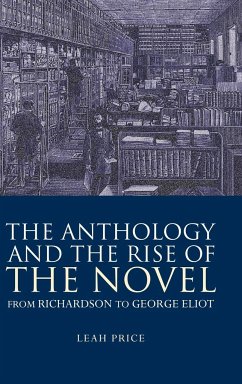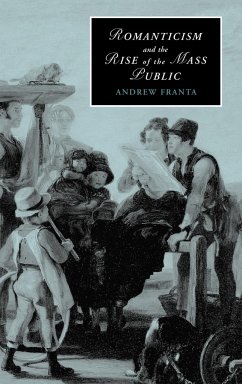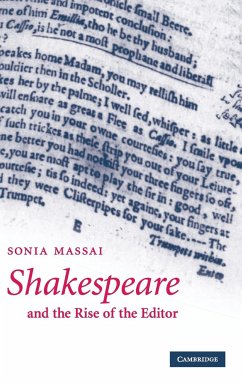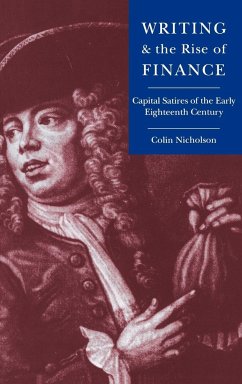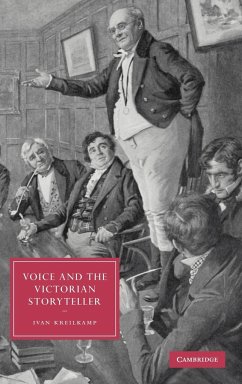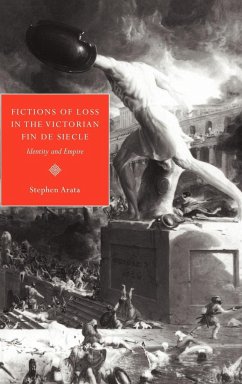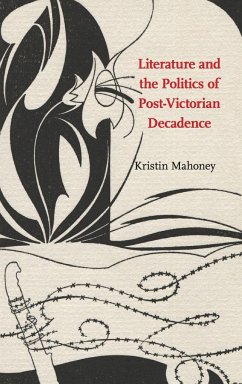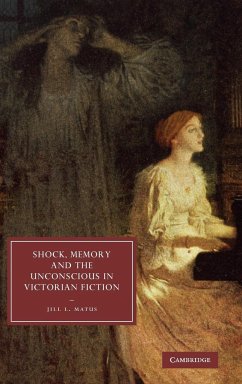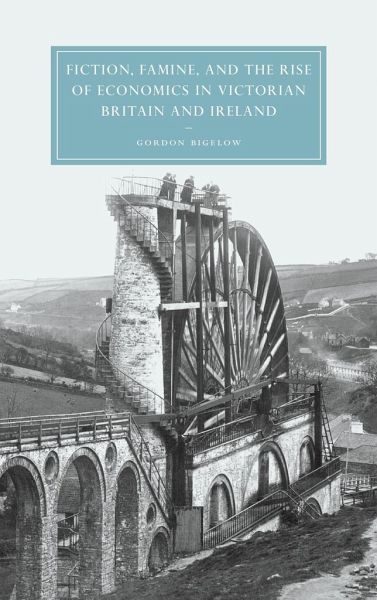
Fiction, Famine, and the Rise of Economics in Victorian Britain and Ireland
Versandkostenfrei!
Versandfertig in 1-2 Wochen
103,99 €
inkl. MwSt.
Weitere Ausgaben:

PAYBACK Punkte
52 °P sammeln!
How fiction influenced the movement from old ideas of political economy to modern concepts of capitalism.We think of economic theory as a scientific speciality accessible only to experts, but Victorian writers commented on economic subjects with great interest. Gordon Bigelow focuses on novelists Charles Dickens and Elizabeth Gaskell and compares their work with commentaries on the Irish famine (1845-1852). Bigelow argues that at this moment of crisis the rise of economics depended substantially on concepts developed in literature. These works all criticized the systematized approach to econom...
How fiction influenced the movement from old ideas of political economy to modern concepts of capitalism.
We think of economic theory as a scientific speciality accessible only to experts, but Victorian writers commented on economic subjects with great interest. Gordon Bigelow focuses on novelists Charles Dickens and Elizabeth Gaskell and compares their work with commentaries on the Irish famine (1845-1852). Bigelow argues that at this moment of crisis the rise of economics depended substantially on concepts developed in literature. These works all criticized the systematized approach to economic life that the prevailing political economy proposed. Gradually the romantic views of human subjectivity, described in the novels, provided the foundation for a new theory of capitalism based on the desires of the individual consumer. Bigelow's argument stands out by showing how the discussion of capitalism in these works had significant influence not just on public opinion, but on the rise of economic theory itself.
Table of content:
Acknowledgements; Introduction; Part I. Origin Stories and Political Economy, 1740-1870: 1. History as abstraction; 2. Value as signification; Part II. Producing the Consumer: 3. Market indicators: banking and housekeeping in Bleak House; 4. Esoteric solutions: Ireland and the colonial critique of political economy; 5. Toward a social theory of wealth: three novels by Elizabeth Gaskell; Conclusion; Notes; Bibliography; Index.
We think of economic theory as a scientific speciality accessible only to experts, but Victorian writers commented on economic subjects with great interest. Gordon Bigelow focuses on novelists Charles Dickens and Elizabeth Gaskell and compares their work with commentaries on the Irish famine (1845-1852). Bigelow argues that at this moment of crisis the rise of economics depended substantially on concepts developed in literature. These works all criticized the systematized approach to economic life that the prevailing political economy proposed. Gradually the romantic views of human subjectivity, described in the novels, provided the foundation for a new theory of capitalism based on the desires of the individual consumer. Bigelow's argument stands out by showing how the discussion of capitalism in these works had significant influence not just on public opinion, but on the rise of economic theory itself.
Table of content:
Acknowledgements; Introduction; Part I. Origin Stories and Political Economy, 1740-1870: 1. History as abstraction; 2. Value as signification; Part II. Producing the Consumer: 3. Market indicators: banking and housekeeping in Bleak House; 4. Esoteric solutions: Ireland and the colonial critique of political economy; 5. Toward a social theory of wealth: three novels by Elizabeth Gaskell; Conclusion; Notes; Bibliography; Index.





